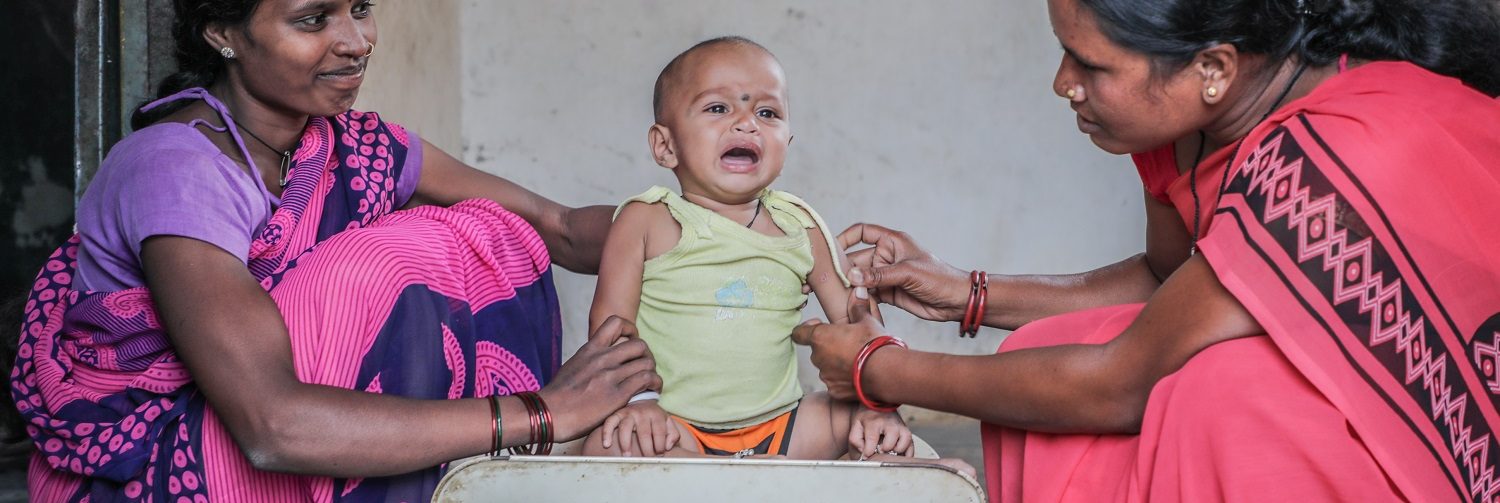Displaying 8 records
Copy all 8 citations
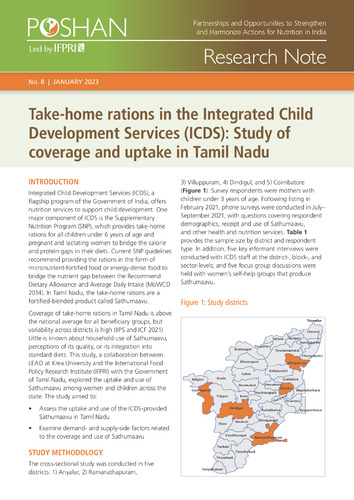
Brief
Take-home rations in the Integrated Child Development Services (ICDS): Study of coverage and uptake in Tamil Nadu
2023Nair, Sapna; Ashok, Sattvika; Menon, Purnima; Avula, Rasmi

Working Paper
A review of the Integrated Child Development Services’ Supplementary Nutrition Program for Infants and Young Children: Take home ration for children
2018Vaid, Abhilasha; Avula, Rasmi; George, Nitya Rachel; John, Aparna; Menon, Purnima; Mathews, Pratima
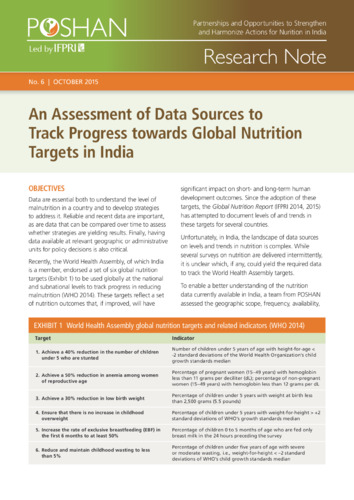
Brief
An assessment of data sources to track progress toward global nutrition targets in India
2015John, Aparna; Knebel, Elisa; Haddad, Lawrence James; Menon, Purnima
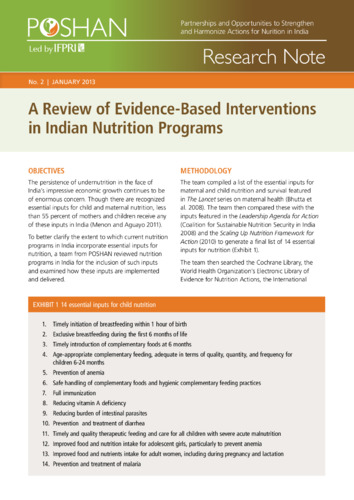
Brief
A review of evidence-based interventions in Indian nutrition programs
2013Avula, Rasmi; Kadiyala, Suneetha; Singh, Kavita; Menon, Purnima
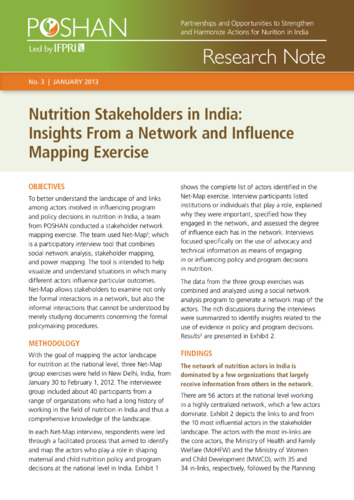
Brief
Nutrition stakeholders in India: Insights from a network and influence mapping exercise
2013Aberman, Noora-Lisa; Pradhan, Mamata; Cyriac, Shruthi; Singh, Kavita; Kadiyala, Suneetha; Menon, Purnima
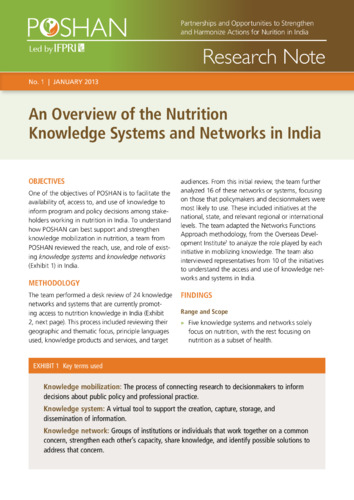
Brief
An overview of the nutrition knowledge systems and networks in India
2013Anuradha, T.; Kunaratnam, Yaso; McGrath, Louise
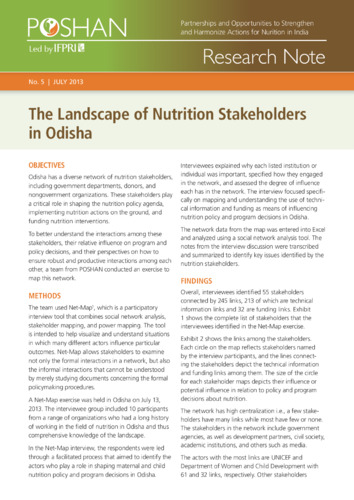
Brief
The landscape of nutrition stakeholders in Odisha
2013Kohli, Neha; Pradhan, Mamata; Menon, Purnima
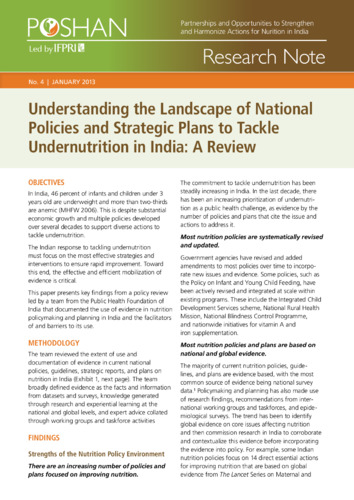
Brief
Understanding the landscape of national policies and strategic plans to tackle undernutrition in India: a review
2013Vir, Sheila; Sreenath, K.C.; Vose, Vijay; Chauhan, Kavita; Mathur, Shivani; Menon, Subhadra
Copy all 8 citations

